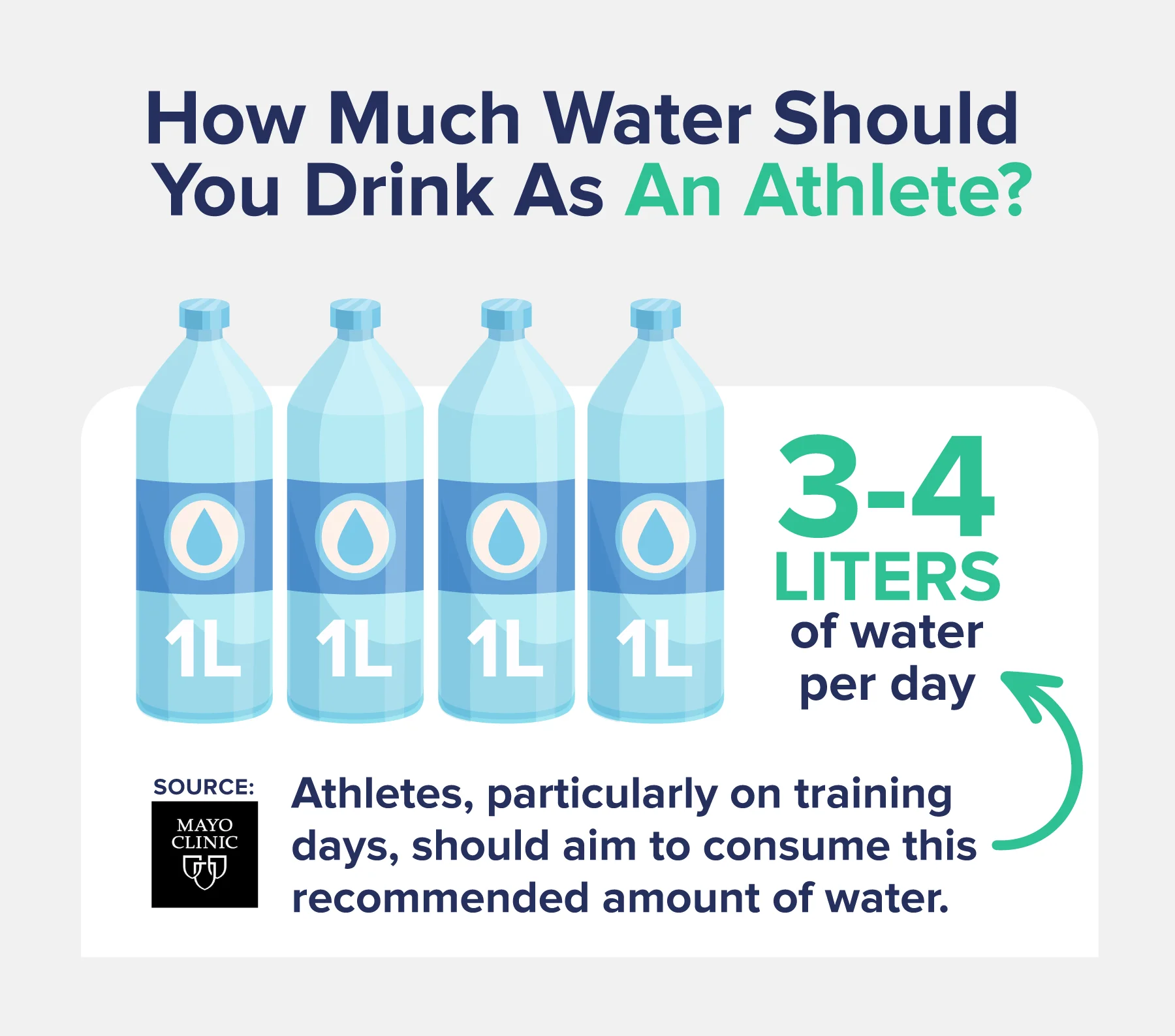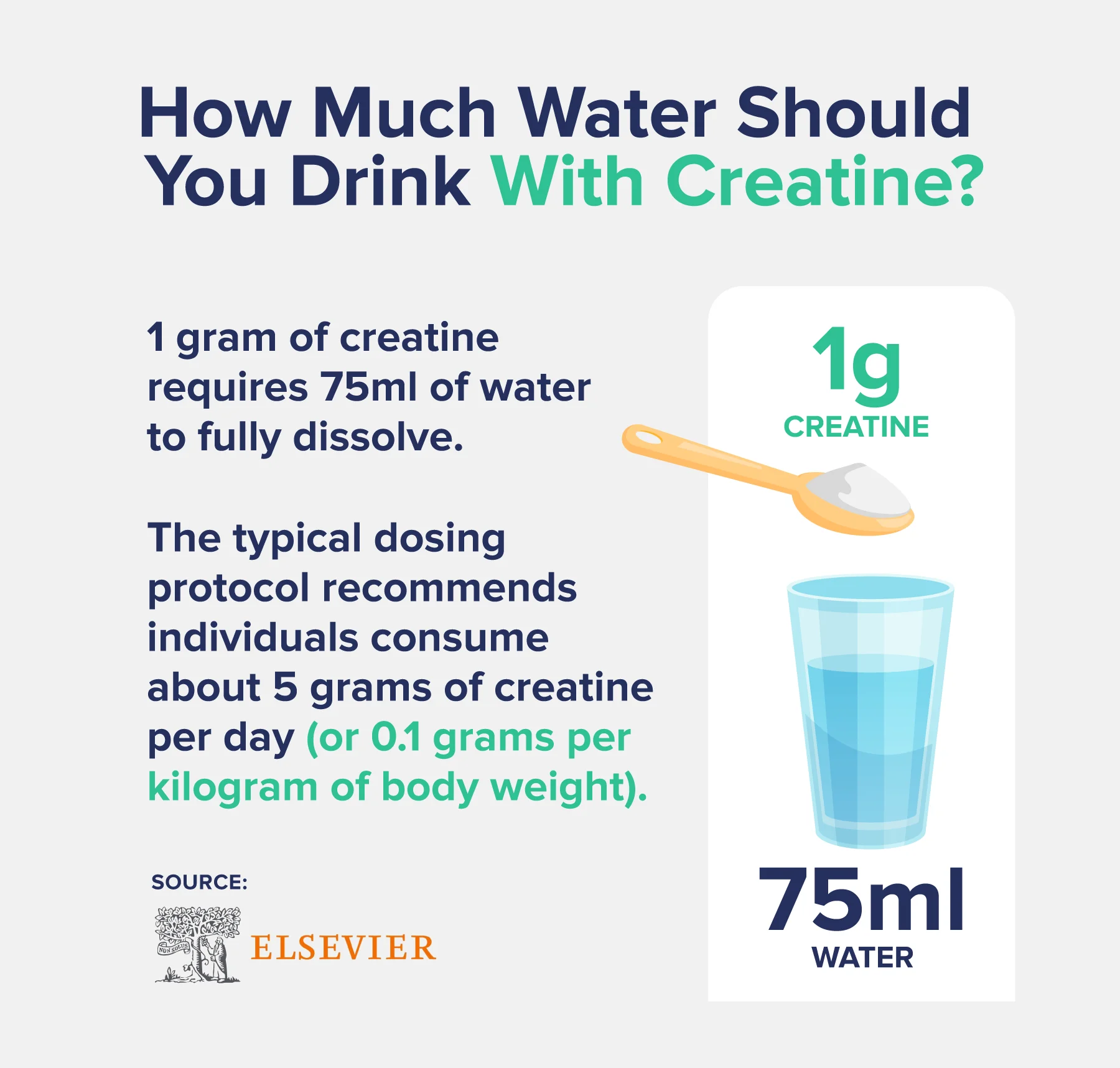Try our favorite, clean protein powder: See our top pick →
Try our favorite, clean protein powder: See our top pick →
This post contains links through which we may earn a small commission should you make a purchase from a brand. This in no way affects our ability to objectively critique the products and brands we review.
Evidence Based Research To fulfill our commitment to bringing our audience accurate and insightful content, our expert writers and medical reviewers rely on carefully curated research.
Read Our Editorial Policy
Creatine monohydrate is like the superhero of the supplement world, and if you’re into fitness, chances are you’ve crossed paths with it.
This little powerhouse has been the subject of countless studies and, as a result, is one of the most highly researched supplements in the sports nutrition industry.
The verdict? Creatine supplements are a game-changer for growing lean muscle mass and improving sports performance. However, for it to work effectively, you need one thing: consistency.
This means consistency in taking creatine every day, consistency with your training program, and, last but not least, consistency with your hydration.
That last point is due to how creatine works to increase exercise performance and support muscle recovery and growth––by drawing water into the muscle cells.
So, here’s the burning question: how much water should you be chugging down with your daily creatine dose?
The short answer: To achieve proper hydration, you should increase your water intake to account for both your physical exertion and your creatine supplementation. The average person needs about 3-4 liters of water per day. A little less if you’re smaller and a little more if you’re bigger.
Want the long answer? Let’s dive in and get the scoop. We’ll start with how much water you should be drinking in the first place.

Per the Mayo Clinic, adults should consume between 2.7 and 3.7 liters of water per day to maintain proper hydration.
All of this does not need to come directly from drinking beverages, since you will get about 20% of your daily intake from food.
This means we need to be intentionally drinking a little over 2 to 3 liters of some kind of beverage (most preferably water) per day.
However, athletes need to drink a bit more since they exert themselves through intense exercise, causing them to sweat.
So, most athletes should intake somewhere between 3 to 4 liters of water per day, especially on training days.
Where you fall in this range depends on your physical size (weight), exercise intensity and duration, climate conditions (hot, cold, dry, humid, etc.), and how much you sweat.
Now, let’s figure out how much more water you need to drink if you’re taking a creatine supplement.

A common side effect reported among those who begin consuming creatine supplements is increased body weight.
However, for the most part, this is just water weight gain as you saturate your creatine stores, which draws water into the muscle cells.
This process is what makes the muscles appear larger while taking creatine, which is one of its primary aesthetic benefits.
However, to fully maximize creatine’s other benefits and remain properly hydrated, you need to know how much water to drink with creatine in addition to your normal water intake.
Per this journal article, one gram of creatine requires 75ml of water to dissolve fully.
The typical dosing protocol recommends that individuals consume about 5 grams of creatine per day (or 0.1 grams per kilogram of body weight).
If we do some quick math, this means you should increase fluid intake by about 375ml or about 12 fluid ounces (1.5 cups).
So, if you are an athlete of average to larger weight and build, you should drink between 3.5 to 4 liters of fluid per day––that’s about a gallon of water.
Now, if you’ve read our article about how much creatine to take, you’ll know that there are two different ways to take creatine.
You can start with a maintenance dose or follow a creatine loading protocol that is then followed by a maintenance dose.
Since your water intake depends on the creatine dose––and you are taking quite a bit more creatine with the latter protocol––does this mean that you need to be drinking more water during that first 5-7 day period?
Let’s find out.
First, let’s briefly recap how and why athletes might want to follow a loading phase dosing protocol for creatine supplementation.
With the loading phase strategy, the standing theory per the scientific literature says that loading with a higher initial dose will more rapidly increase creatine stores in your skeletal muscles, allowing you to reap the benefits of this supplement more quickly.
This is an optimal strategy for athletes who need to see a more rapid increase in performance or muscle growth within a shorter period of time––around 20 to 30 days.
To start, take 20-25g of creatine (or 0.3g of creatine per kilogram of body weight) daily for 5-7 days.
You can split this dose into 5g servings––taken with a glass of water, pre-workout, or in your protein shake––throughout the day.
Once you have completed this initial loading phase, you can transition to a maintenance dose of around 3-5g of creatine per day (or 0.1g of creatine per kilogram of body weight).
When creatine loading, yes, it’s recommended to drink a little more water than you will during your maintenance period; aim to drink a little over 4 liters of water in the first week to support your increased creatine intake.
If you are splitting up your doses, it should be easy to add in the extra water by taking your creatine with the recommended 375ml/1.5 cups.
We caution you against going overboard since overhydration can be just as dangerous as dehydration, but this strategy can help slightly optimize that first week of creatine loading.
Staying hydrated, in particular when you’re working out and taking creatine, is incredibly important.
Increased physical activity, especially if you’re doing high-intensity exercise, means you’re losing extra fluid from your pores in the form of sweat and respiration (breathing heavily).
In fact, you exhale four times more water when you have an elevated (140bpm+) heart rate!
Here are some tips for staying hydrated:
Signs of dehydration include dark-colored urine, headaches, dizziness, and fatigue. If you think you’re dehydrated, don’t work out until you’ve replenished your body with fluids.
Proper hydration also means keeping an eye out for overhydration, also called hyponatremia.
This can happen when the body retains too much water after excess water consumption, which can dilute essential electrolytes, leading to an electrolyte imbalance.
Symptoms include swelling, bloating, nausea, headaches, confusion, and, in severe cases, water intoxication. If your urine is clear, slow down on the water.
Since creatine draws water into the muscle cells to enhance exercise performance and muscle recovery, it’s important to maintain proper hydration to optimize your creatine supplementation. Ensure consistent water intake, monitor urine color, and avoid excessive caffeine or alcohol consumption, as they can contribute to dehydration.
On average, individuals, especially athletes, should aim for 3 to 4 liters of water per day. This accounts for both regular physical exertion and creatine supplementation. Adjust your intake based on factors like body size, exercise intensity, climate conditions, and how much you sweat. It’s also important to watch out for signs of dehydration.
It’s generally recommended to take creatine with 375ml water (if taking a 5g dose) for optimal absorption. Water helps dissolve creatine effectively, ensuring it reaches the muscles efficiently. However, you can also take it with juice, a protein shake, or a pre-workout supplement, as long as you are drinking enough liquid with it.
Subscribe now and never miss anything about the topics important to you and your health.